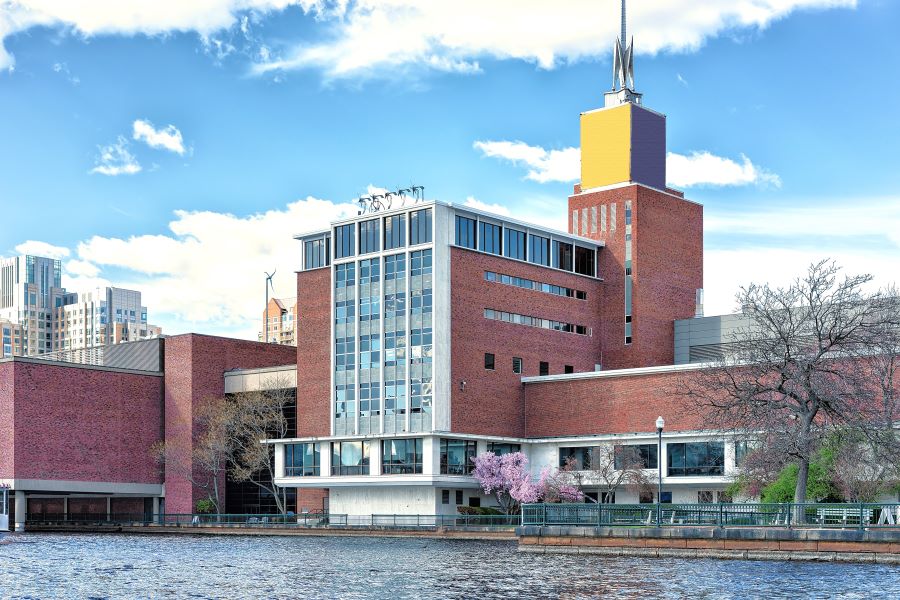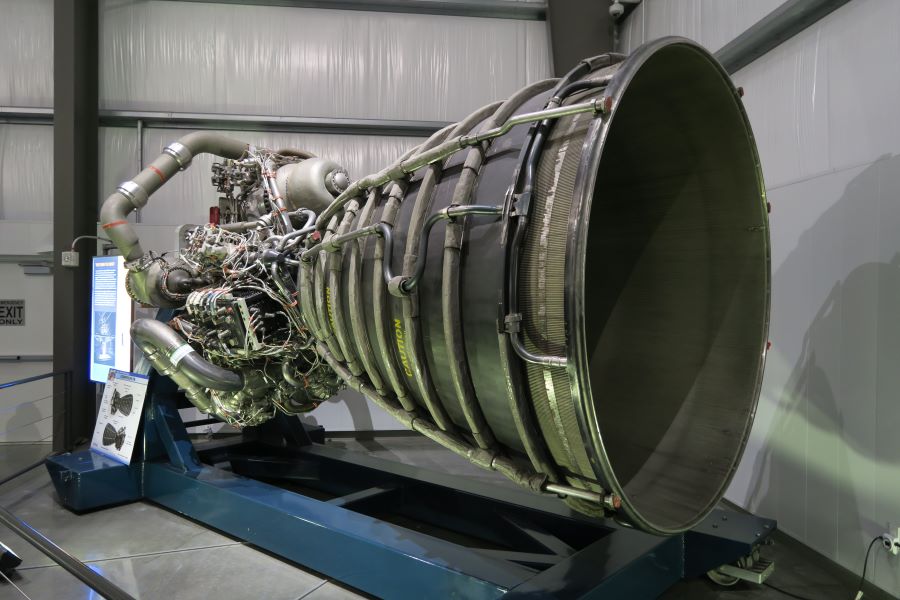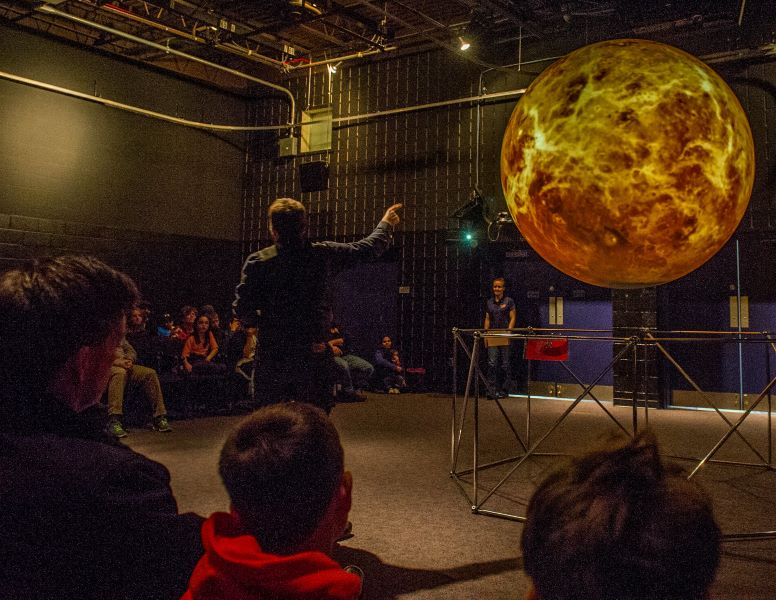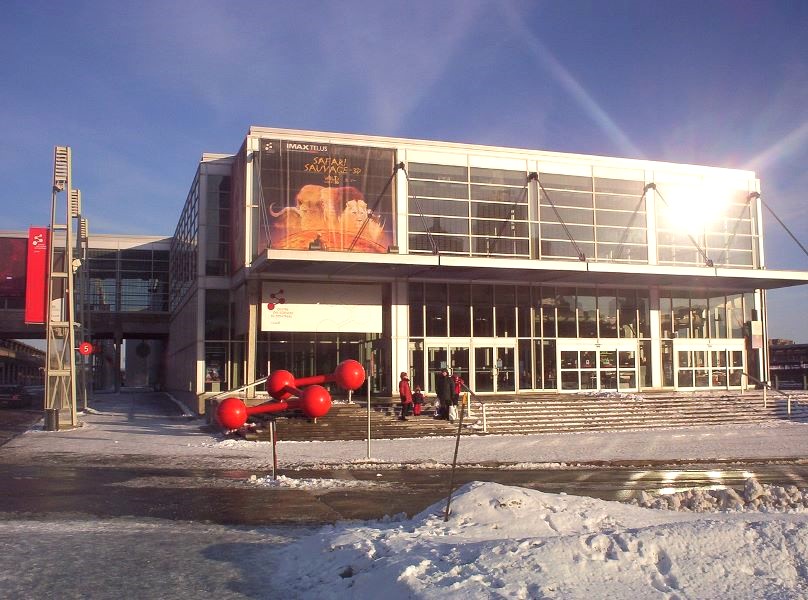North America boasts an impressive array of science museums and centers, each offering its own blend of exhibits, interactive experiences, and educational opportunities. Whether you’re exploring the mysteries of outer space, delving into the intricacies of human biology, or unraveling the marvels of modern technology, these museums provide a window into the vast expanse of scientific discovery.
Each institution, rooted in its city’s culture and ethos, invites visitors on a journey of exploration, making science both accessible and enthralling for all ages. Of course, the National Air and Space Museum and the Museum of Natural History in New York are amazing museums. But you don’t really need us to tell you that. So here are some slightly less obvious — but no less illuminating — science museums.
The Exploratorium — San Francisco, California

The Exploratorium by Alan Grinberg licensed under CC BY-NC-ND 2.0 DEED
The Exploratorium in San Francisco redefines the way museums can engage with audiences. Located on Pier 15 along the city’s Embarcadero, this museum offers visitors an interactive journey through over 600 exhibits, fostering curiosity and sparking creativity. The Exploratorium’s exhibits delve into various domains, including physics, biology, perception, and the environment.
Notable displays include the Tactile Dome, where visitors navigate total darkness using only their sense of touch, and the mesmerizing outdoor installations that capture the beauty of San Francisco Bay. Additionally, the museum’s “After Dark” program, for adults only, delves deeper into specific topics with a blend of science and art, often accompanied by cocktails and music.
Field Museum of Natural History — Chicago, Illinois

Field Museum, Chicago, Illinois
The Field Museum of Natural History in Chicago is one of the world’s premier natural history institutions. Located on the city’s iconic lakefront, this renowned institution attracts millions of visitors annually with its vast collection of anthropological, biological, and geological specimens. One of the museum’s most famed residents is “Sue,” the largest and most complete Tyrannosaurus rex skeleton ever discovered.
Beyond dinosaurs, the Field Museum offers a journey through time and space, with exhibits like “Inside Ancient Egypt,” where visitors can explore an ancient Egyptian tomb. The museum also boasts the Grainger Hall of Gems, displaying a dazzling collection of gems and jewelry. In addition to its permanent exhibits, the museum consistently introduces temporary exhibits that cover a range of fascinating topics.
Museum of Science — Boston, Massachusetts

Museum of Science, Boston, Massachusetts
The Museum of Science in Boston stands as one of the pillars of interactive scientific and technological education in the United States. Situated along the scenic Charles River, the museum captivates visitors with over 700 interactive exhibits that span topics from engineering and biology to astronomy and physics.
The museum’s Charles Hayden Planetarium is a particular highlight, offering visitors immersive journeys through the cosmos. Its 4D Theater and the Mugar Omni Theater, an IMAX dome screen, further elevate the sensory experience with films on diverse scientific topics.
For younger guests, the Discovery Center provides hands-on experiences to kindle their budding scientific curiosity. The museum’s live animal center showcases creatures from both local habitats and distant lands, emphasizing biodiversity.
California Science Center – Los Angeles, California

Space Shuttle Endeavor (detail), California Science Center, Los Angeles, California
The California Science Center, located in Los Angeles, is a dynamic destination where visitors can explore the wonders of science through interactive exhibits, live demonstrations, and awe-inspiring artifacts. One of the center’s most renowned displays is the Space Shuttle Endeavour, allowing guests an up-close experience with a genuine orbiter and an understanding of space exploration.
Spread across various themed areas, the center delves into topics like the ecosystems of our world, where visitors can journey from polar extremes to the temperate rainforests. The World of Life exhibit examines the commonalities of living creatures, illustrating the life processes that plants, animals, and humans share. For those intrigued by feats of engineering and the laws of motion, the Creative World exhibit is a must-visit. Besides its permanent displays, the California Science Center offers ever-evolving temporary exhibitions, ensuring there’s always something new to discover, making science accessible and fun for all ages.
Ontario Science Centre — Toronto, Ontario

Ontario Science Center by NASA Goddard Flight Center licensed under CC BY 2.0 DEED
The Ontario Science Centre, situated in Toronto, is a testament to the power of hands-on, interactive learning. Since its inception in 1969, the center has been a beacon for science education in Canada, drawing visitors of all ages to its vast array of exhibits that span various scientific disciplines. The “Science Arcade” exemplifies this approach, with dynamic displays, demonstrations, and interactive challenges that make complex scientific principles tangible and engaging.
The “KidSpark” section, specially designed for children eight and under, fosters early scientific curiosity through play and exploration. The center’s IMAX® Dome theatre magnifies the wonders of nature and technology, immersing viewers in a sensory-rich cinematic experience. Live demonstrations, ranging from electricity to chemistry to the human body, further bring scientific concepts to life.
Science World — Vancouver, British Columbia

Science World, Vancouver, British Columbia
Vancouver’s Science World, housed in its iconic geodesic dome, is a hub of scientific exploration and education on Canada’s West Coast. Sitting at the edge of False Creek, this shimmering sphere beckons visitors into a realm of discovery. Inside, guests are treated to a plethora of hands-on exhibits that delve into subjects such as physics, biology, and technology.
The Eureka! Gallery is particularly popular, where visitors can engage with water, light, sound, and motion experiments. The OMNIMAX Theatre inside Science World is one of its major attractions, presenting films that transport audiences from the depths of the oceans to the reaches of outer space, all on a massive domed screen. For younger explorers, the Kidspace gallery offers interactive play opportunities. Furthermore, live science demonstrations, shows, and workshops punctuate the Science World experience, making it a compelling destination for learners of all ages in Vancouver.
You Might Also Enjoy: Ground Control to Major Tom! Great Destinations for the Space-Obsessed
Montreal Science Centre — Montreal, Quebec

Centre des Sciences de Montréal, Québec by Colocho licensed under CC BY-SA 2.5 DEED
The Montreal Science Centre, located in the heart of Montreal’s Old Port, is a beacon of scientific exploration and learning. Tailored to both adults and children, the center offers a variety of interactive exhibitions that demystify the complexities of science and technology. One of its standout features is the myriad of hands-on displays, encouraging visitors to touch, play, and experiment, thus fostering a deeper understanding of scientific principles.
The center often showcases themed exhibitions that delve into contemporary topics, ranging from the human body to video game technology. For cinematic enthusiasts, the IMAX® Telus Theatre inside the center presents films that immerse viewers in the wonders of nature, space, and far-off cultures. The Montreal Science Centre also emphasizes the importance of innovation, with spaces dedicated to creative problem-solving and design.
FAQs:
Q: What are the general operating hours for these museums?
A: Most museums operate between 9:00 AM and 5:00 PM, but hours can vary. It’s best to check each museum’s official website for precise timings.
Q: How accessible are these museums for individuals with disabilities?
A: All featured museums prioritize accessibility and offer features like ramps, elevators, and specialized programs to cater to visitors with disabilities.
Q: Are these museums suitable for children?
A: Absolutely! All featured museums offer exhibits and activities designed for both adults and children, ensuring a family-friendly experience.
Q: Can I find interactive exhibits at these museums?
A: Yes, each museum prioritizes hands-on, interactive exhibits, making science engaging and accessible for visitors.
Q: Do these museums offer special programs or events?
A: Most museums host special events, workshops, and temporary exhibitions, enhancing the visitor experience and providing fresh content.
Q: Are there any admission fees for these museums?
A: While some museums might offer free days or sections, generally, there’s an admission fee. It’s best to check each museum’s official website for accurate pricing and ticketing information. Be sure to check out any package deals these places might have with other attractions in the city.


Leave a Reply